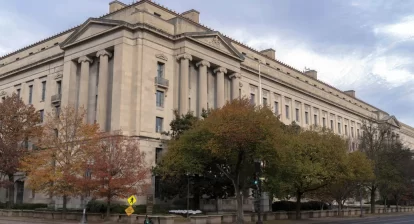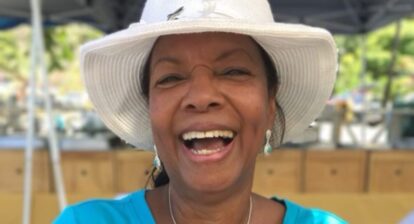
OPINION: Nicolle Hurline Grayson has 8 ways to resist the actions taken by elected officials and corporations to whitewash Black history.
Editor’s note: The following article is an op-ed, and the views expressed are the author’s own. Read more opinions on theGrio.
Mrs. Ida Smith Grayson was a prominent Black activist in York, Pennsylvania’s African American community around the turn of the 20th century. Though small in stature — barely five feet tall — she carried a fiery spirit and unwavering resolve. One of her most significant accomplishments was establishing and organizing the “Colored Branch of the American Red Cross” during World War I. However, her leadership and activism were met with systemic racism.
According to a Dec. 02, 1918 Philadelphia Inquirer article, Mrs. Grayson and other Black women arrived in their Red Cross uniforms at a Pennsylvania Red Cross meeting, expecting to be seated on the first floor as promised. Instead, they were relegated to the balcony. “Humiliated and indignant,” they walked out before the meeting even began, refusing to be disrespected. Their actions sent a clear message: dignity would not be compromised, even in the face of racial exclusion.
Her family has long-shared stories of Mrs. Grayson’s courage. One particularly powerful memory comes from her son, who recounted a visit to Virginia as a boy in the 1920s when Senator Harry Byrd, a staunch segregationist, was speaking. Byrd, much like some politicians today, attempted to whitewash history, declaring how much Black people loved him. In the middle of his speech, Mrs. Grayson stormed down the aisle, pointing her finger and shouting, “You lie!” The next thing he knew, his father quickly picked up his mother and hurried the family back to Pennsylvania for her safety.
Mrs. Grayson’s influence extended far beyond these singular acts of defiance. She owned a boarding home called the Charlotte Hotel, which was listed in the Green Book as a safe spot in York, Pa., for Black travelers during Jim Crow. She is a founder of the Emergency Girls Club — a 64-member group that provided recreational, social, religious, and educational opportunities for young Black women. She was also a charter member of the Phyllis Wheatley Literary Club, a founding member of the Entre Nous Art Club, and a district organizer of the Pennsylvania State Federation of Colored Women’s Clubs.

I am proud to be Ida Grayson’s great-granddaughter, but her story is not unique. Across generations, Black excellence, resistance, and resilience have shaped this country, providing a roadmap for confronting the anti-Black and anti-American sentiment we see today.
This is precisely why stories like hers are being erased from classrooms, schools, and colleges nationwide. When you erase history, you erase the explanations for systemic racism’s persistence. You erase stories of excellence, triumph, and resilience. You erase a people who have long fought for this nation to live up to her ideals to be “one nation, indivisible, with liberty and justice for all.”
Just two weeks ago, an executive order was introduced by the president to eliminate lessons in public schools and colleges that teach children about the triumphs and tribulations of Black people. In nearly every state in the union, there are policies to dismantle programs and lessons designed to uplift and support Black students, stripping them of spaces where they feel seen, valued, and included.
Decision-makers nationwide have banned books and restricted access to the truth of our nation’s history. Biographies of Rosa Parks, Ruby Bridges, Sonia Sotomayor, and Nelson Mandela — stories that educate and inspire — are being stripped from classroom lessons. More than half of U.S. students are students of color, yet they are continuously denied complex racial and cultural representation in their classrooms. This erasure threatens not only their academic growth but also their understanding of diverse perspectives and their own identities.
In higher education, diversity, equity, and inclusion (DEI) programs are being dismantled, sending a clear message to students of color that they don’t belong. The elimination of these initiatives harms campus racial climates, removes safe spaces, and negatively impacts students’ mental health.
Beyond education, this erasure extends to the national narrative. Significant historical events woven into our nation’s fabric are being removed from the National Archives. Google quietly eliminated Black History Month from its calendars. The National Science Foundation and the Department of Education are defunding research that examines race and education. Meanwhile, corporate America is making concerted efforts to erase the contributions of deserving and meritorious Black workers.
Yet, if history has taught us anything, it is this: We cannot be erased. Our stories are our legacy. Our histories live through us.
Like our foremothers, we must fight. We must make our voices heard, or we face erasure.
We must resist by taking action:
- Speak up in your communities — at school board meetings, town halls, and on social media — to demand that Black history remain a part of the lessons taught in schools and colleges.
- Support educators, historians, researchers, and journalists who are working tirelessly to preserve our stories.
- Read and share books that tell our histories and lessons, especially those that are being banned.
- Hold corporations accountable for their role in diversity erasure — use the power of your dollars and let your voice be heard.
- Support businesses that support you.
- Get politically involved: call your congressperson, senator, or councilmember — someone with power with whom you can speak your mind and demand results.
- Advocate for policies protecting access to American History and uplifting our people and communities. EdTrust’s Can’t Be Erased toolkit has resources.
- Support Black women.
This fight is not new. Our ancestors resisted, organized, and fought for the truth. Now, it is our turn. We must honor their sacrifices and protect the future for generations to come. Let’s give our children’s children stories to tell.
Because they may try to erase us — but we refuse to disappear.
Nicolle Hurline Grayson is the vice president of Communications at EdTrust. She is a proud Spelman alumna, a member of the Links, Incorporated, and an education activist.
If you have stories to share about erasure in your community, tell EdTrust at media@edtrust.org, and we will include them in our #CantBeErased campaign.
!function(){var g=window;g.googletag=g.googletag||{},g.googletag.cmd=g.googletag.cmd||[],g.googletag.cmd.push(function(){g.googletag.pubads().setTargeting(“has-featured-video”,”true”)})}();
More must-reads:





